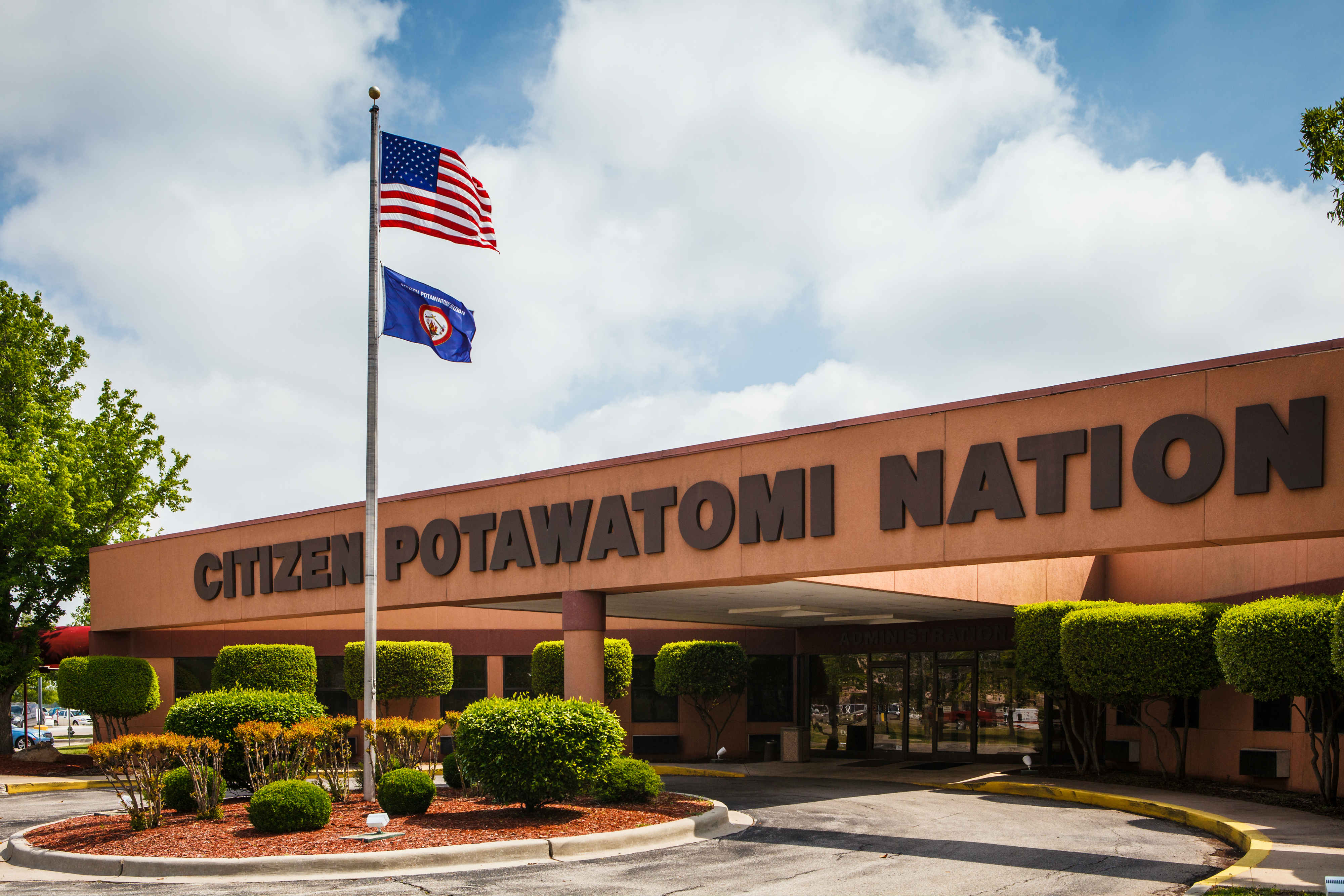
The Oklahoma Tax Commission has lost in its attempt to unlawfully collect sales taxes from the Citizen Potawatomi Nation. Arbitrator Daniel J. Boudreau, former State of Oklahoma Supreme Court Justice, ruled in favor of the Citizen Potawatomi Nation in a dispute between CPN and the Oklahoma Tax Commission.
Read the full text of Justice Boudreau’s ruling here.
“Federal law protecting tribal sovereignty interests preempts and invalidates the State’s sales tax on the Nation’s sales in question,” Justice Boudreau said in his decision. “We are grateful to read the final decision by former Supreme Court Justice Boudreau,” stated Citizen Potawatomi Nation Tribal Chairman John Barrett. “It confirms what we’ve said all along. The state government acted unlawfully in its attempt to tax tribal enterprises operating on Indian trust land.”
The tribe requested arbitration after the OTC filed a complaint in its Administrative Proceedings Division on May 28, 2014 seeking to revoke permits for sales tax, low point beer and mixed beverages from all tribal enterprises including FireLake Entertainment Center, FireLake Corner Store, FireLake Discount Foods, FireLake Express Grocery and Grand Casino Hotel and Resort.
The State of Oklahoma incorrectly said that the Nation was obligated to collect, report and pay state sales taxes on sales at all tribal businesses under the gaming compact. The Nation disputed that, arguing that the State of Oklahoma was attempting to use the gaming compact to unlawfully impose state sales taxes on tribal land.
Justice Boudreau stated in the arbitration award that the “Federal and tribal interests must be weighed against state interests. When a state imposes a tax on non-member activity on Indian land, the courts apply a flexible preemption analysis to determine whether the tax is valid or invalid.”
The analysis test comes from United States Supreme Court rulings in Indian Country U.S.A. v. State of Oklahoma, 829 F.2d 967 {10th Cir. 1987) and White Mountain Apache Tribe v. Bracker, 448 U.S. 136 {1980), among other decisions.
Specifically, Boudreau found that that the Nation has significant federal and tribal interests in the CPN’s self-governance, economic self-sufficiency, and self-determination. He also noted that the Nation alone invests value in the goods and services that it sells not by advertising its exclusivity from state sales taxes due to the imposition of equivalent tribal sales tax on transactions taking place on its tribal trust land.
“We have diversified our businesses so that our government revenue does not only depend on gaming,” Barrett said. “In order to support our government, provide services to Oklahoma citizens and create more economic development, we charge the same sales tax at our enterprises as the non-tribal communities near them. We do this not only to provide needed revenue, but because it is the fair thing to do. We do not want an unfair advantage created from a tax exemption.”
Boudreau also found that the State of Oklahoma possesses no economic interest beyond a general quest for additional revenue by seeking to impose a sales tax on the Nation’s transactions and therefore suffers no uncompensated economic burden arising therefrom. He concluded by finding that the federal and tribal interests at stake predominate significantly over any possible state interest in the transactions upon which the OTC seeks to impose its sales tax on.
“Our goal is to improve the quality of life in this Pottawatomie County, including the communities around us and we do that by creating opportunities for all people through quality jobs and increased services in our area of economic impact,” said Chairman Barrett. “Our economic impact is now more than $550 million per year with gaming as a reinvestment revenue source. It has allowed us to create 2,400 jobs in our rural communities, which in Pottawatomie County equates to 70 percent of all new job creation in the last ten years.”
Oklahoma law firm Crowe & Dunlevy represented CPN in the arbitration.
“This is a significant victory for the Nation,” said Mike McBride, Chair of Crowe & Dunlevy’s Indian Law & Gaming Practice Group. “The facts and law needed to prove federal preemption is complex and hard to do. It has been decades since a tribe in Oklahoma has won such a decisive and broad victory to keep the state out of the Nation’s businesses. The arbitration award should help bring economic peace and prosperity for the Nation.”
